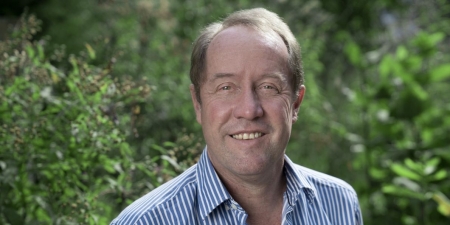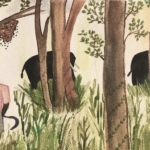Does science impact nature conservation policy? Stories of success and failure.- Hugh Possingham
Hugh Possingham
- Start Friday 03 May 2024 4:15pm
- Finish Friday 03 May 2024 5:15pm
- Venue Main Lecture Theatre
- Watch seminar recording (external site)

Hugh in semi-retirement has 3 jobs: Biodiversity Council’s Co-chief Councillor, Chief Scientist of Accounting for Nature and The University of Queensland. He was the founding Director of The Australian Research Council Centre of Excellence for Environmental Decisions, the National Environmental Science Program Threatened Species hub and an Australian Research Council Professorial, Laureate and Federation Fellow.
Hugh also has a variety of broader public roles advising policy makers and managers, and sits on c30 boards and advisory committees – from the Friends of Oxley Creek Common to Conservation International.
Alongside Dr Barry Traill, Hugh wrote “The Brigalow Declaration”. This open letter was used by the Queensland Premier Peter Beattie to stop land clearing in the state, thereby stopping c10% of Australia’s greenhouse gas emissions per annum and saving an area the size of Portugal from conversion into farmland.
The Possingham lab developed Marxan, the most widely used conservation planning software in the world. Marxan was used to underpin the rezoning of the Great Barrier Reef and is currently employed by more than 7000 users in over 180 countries to build most of the world’s marine and terrestrial protected area systems from the Amazon and British Columbia to the Sunda Sea and South Africa.
Hugh has co-authored over 740 peer-reviewed papers, including 35 in Science and Nature, and has been the privileged mentor of over 200 PhD candidates, honours students and postdoctoral researchers. His google scholar h-index is 164. Hugh has honorary doctorates from the University of British Columbia and Adelaide University.
He has one known psychological disorder – a compulsive desire to watch birds.
The Leverhulme Centre for Nature Recovery and Biodiversity Network are interested in promoting a wide variety of views and opinions on nature recovery from researchers and practitioners.
The views, opinions and positions expressed within this lecture are those of the author alone, they do not purport to reflect the opinions or views of the Leverhulme Centre for Nature Recovery/Biodiversity Network, or its researchers.

